The University of Massachusetts Board of Trustees has voted to approve the establishment of four newly endowed professorships and the appointment of five esteemed UMMS faculty members to new or existing endowed chairs. The newly endowed faculty are: Douglas T. Golenbock, MD, professor of medicine and microbiology & physiological systems and chief of the Division of Infectious Diseases and Immunology in the Department of Medicine; Gregory A. Volturo, MD, chair and professor of emergency medicine; Anastasia Khvorova, PhD, professor of RNA therapeutics and molecular medicine; Erik J. Sontheimer, PhD, professor of RNA therapeutics and molecular medicine; and Jennifer A. Reidy, MD, associate professor of family medicine & community health and medicine, and chief of the Division of Palliative Care in the Department of Medicine.
“Our institution is fortunate to have these colleagues as compelling ambassadors for the excellence of UMMS,” said Chancellor Michael F. Collins. “Please join me in congratulating them on this well-deserved recognition. Together with their fellow endowed chairs and named professors, they exemplify the world-class caliber of our faculty.
“It is important that we also take this opportunity to publicly thank our donors, whose generosity and partnership have made these faculty endowments possible. We also extend sincere appreciation to the Massachusetts Legislature which, by creating the Public Higher Education Endowment Incentive Program for Fiscal Year 2020, has encouraged meaningful gifts to public institutions of higher education, including ours.”
The Neil and Margery Blacklow Chair in Infectious Diseases and Immunology
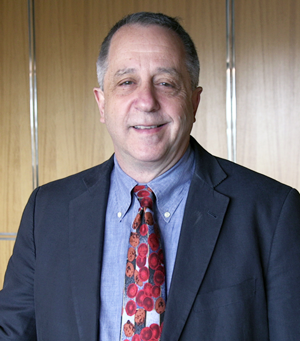
|
Neil R. Blacklow, MD, chair emeritus and professor of medicine, and his wife, Margery L. Blacklow, in a wonderful display of generosity and confidence, made a leadership gift to establish the Neil and Margery Blacklow Chair in Infectious Diseases and Immunology. Dr. Blacklow is an internationally respected physician-scientist and infectious disease expert who served the UMMS community from 1976 to 2008 as the founding chief of the Division of Infectious Diseases and, subsequently, as chair of the Department of Medicine. Early in Blacklow’s career, he and his collaborators made seminal contributions to the identification of adenovirus-associated viruses, now commonly known as AAVs, and demonstrated that AAVs infect humans. Following this discovery, Blacklow conducted extensive research into the mechanisms of viral gastroenteritis, including the discovery of noroviruses. His many accomplishments include directing the AIDS Clinical Trials Group center and serving for a decade as the founding editor-in-chief of NEJM Journal Watch Infectious Diseases. In 2008, the Medical School bestowed upon Blacklow the title of chair emeritus in recognition of his many years of exceptional service, leadership and scientific contributions.
Per the endowment agreement, the gift from the Blacklows is to support the work of the chief of the Division of Infectious Diseases and Immunology at UMMS. This position has been held by Douglas T. Golenbock, MD, since 2001. Under Dr. Golenbock’s outstanding leadership, the Division of Infectious Diseases and Immunology has become one of the strongest in the nation, with nearly 50 clinicians and researchers and a research grant portfolio approaching $20 million. Golenbock’s lab focuses on microbial products that activate innate immunity and was one of the first in the world to study Toll-like receptors. His lasting contributions to the scientific community are reflected in his election to the American Society for Clinical Investigation, the Association of American Physicians and the Fellowship of the American Society of Microbiology, and with his receipt of an NIH Merit Award.
The Richard V. Aghababian, MD’74 Chair in Emergency Medicine
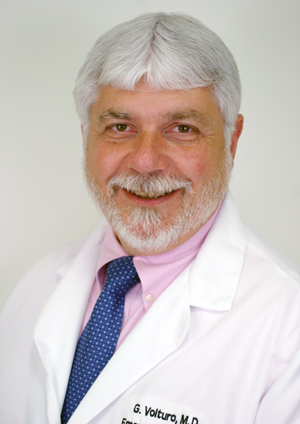
|
The distinguished legacy of Richard V. Aghababian, MD, stretches back to the earliest days of UMMS. After graduating from Harvard College, Dr. Aghababian was admitted to the inaugural class of 16 medical students, graduating with the first class in 1974. In 1992, he was appointed founding chair of the Department of Emergency Medicine at UMMS, a position he held until 2007, after which he continued to serve as professor and as associate dean for continuing medical education. His tenure included a term as president of the American College of Emergency Physicians. Following Aghababian’s death in 2014, his beloved wife, Ann, and his family sought to honor his career by establishing an endowed fund to support the ongoing development of emergency medicine physician leaders. More recently, Mrs. Aghababian generously decided to permanently endow a second fund that bears her husband’s name to support the needs of the chair of the Department of Emergency Medicine.
As such, Gregory A. Volturo, MD, has been appointed the inaugural holder of the Aghababian Chair, and will be able to support medical education, research and patient care needs with proceeds from the endowment. After joining the UMMS faculty in 1988, Dr. Volturo served for seven years as Dr. Aghababian’s vice chair, ultimately succeeding him as chair of the department. It is most fitting that Volturo will carry on Aghababian’s rich and influential legacy by now holding the endowed chair that bears his name. Like Aghababian before him, Volturo’s impact on the practice of emergency medicine and on the health of the people of Central Massachusetts is profound. As chair since 2007, Volturo has led five emergency rooms and the EMS and LifeFlight systems on which more than a million people in the region rely. He has nurtured fellowship programs; led one of the top NIH-funded emergency departments in the nation; and empowered his faculty colleagues to become leaders in a range of community health initiatives, while pursuing his own research on respiratory tract infections and the management of emergency departments. Volturo has become a dedicated advocate for the practice of emergency medicine, serving on numerous journal editorial and review boards, and in leadership positions of professional specialty organizations.
The Remondi Family Chair in Biomedical Research
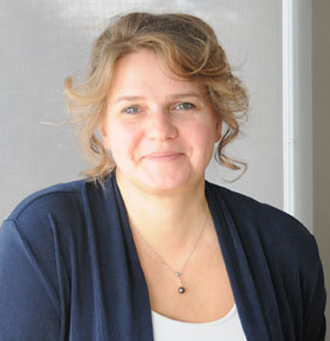
|
In creating the Remondi Family Chair in Biomedical Research, Dorothy A. Remondi and John J. Remondi, of Boston, have chosen to invest in a biomedical researcher whose work is advancing the fundamental understanding of human biological systems and offering new and innovative pathways to treat human disease. Through the Remondi Family Foundation, Dottie and John Remondi have supported numerous organizations across Massachusetts and beyond in education, social service, health care and medical research initiatives.
As a pioneer in understanding the biochemistry of RNA therapeutics, Anastasia Khvorova, PhD, is uniquely qualified for such recognition. Her lab identifies the chemical and biological properties that drive the distribution, retention, cellular uptake and biological availability of small RNAs. Her overarching goal is to employ chemical engineering to deliver oligonucleotide and RNA-based therapies to the heart, kidneys, muscle, placenta, vasculature and brain—tissues previously not targeted by RNA interference. Notably, the Khvorova lab is currently investigating the use of siRNA and antisense RNA oligonucleotides specific for SARS-CoV-2, which could be delivered to all cell types in the lungs and potentially target the virus and significantly reduce the rate of viral replication. Khvorova was awarded a prestigious Harrington Scholar Award for Coronavirus in support of this approach. Earlier this year, Dr. Khvorova was elected director-at-large and scientific and research council chair by the membership of the American Society of Gene and Cell Therapy, the world’s largest association of individuals involved in gene and cell therapy research.
The Pillar Chair in Biomedical Research
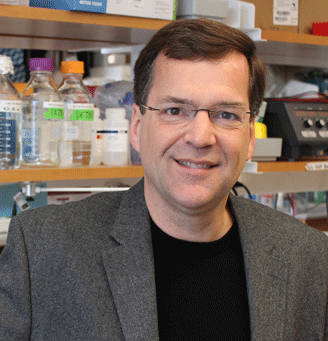
|
Established in 2015 thanks to the philanthropic investment of the Pillar Group, based in Beirut, this endowment broadly supports pioneering biomedical research that will ultimately impact human health and the practice of medicine. Erik J. Sontheimer, PhD, one of best-known and regarded leaders in the field of CRISPR gene editing, was approved by the University Board of Trustees as the newest recipient of the Pillar Chair in Biomedical Research, formerly held by Golenbock. Dr. Sontheimer is ideally suited to hold an endowed chair with such an ambitious mandate. In 2014, at the time UMMS recruited Sontheimer from Northwestern University, he had already published paradigm-shifting discoveries that laid the groundwork for the CRISPR revolution in gene therapy. More recently, Sontheimer helped identify Cas9 inhibitors, so-called “anti-CRISPRs,” that could potentially control the activity of Cas9 enzymes. The more than 15,200 citations to Sontheimer’s scholarly work; his service as the associate editor of RNA, the journal of the RNA Society, The CRISPR Journal and others; his election to the American Academy of Microbiology; and his selection as the recipient of the RNA Society Mid-Career Award are examples of his impact and prominence in the field of RNA science.
Joy McCann Professor for Women in Medicine
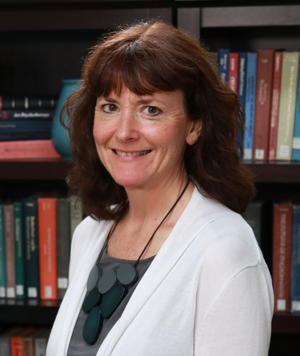
|
Jennifer A. Reidy, MD, associate professor of family medicine & community health and medicine; and chief of the Division of Palliative Care in the Department of Medicine, has been named the next Joy McCann Professor for Women in Medicine. This three-year professorship rewards female faculty leaders in medical education, research, patient care and community service. The McCann Professorship was established at UMass Medical School in 2005 by an endowment from the Joy McCann Foundation.
Among her many professional accomplishments, Dr. Reidy has developed an innovative curriculum to support medical and nursing students in learning how to effectively provide end-of-life care and counseling to patients. The curriculum was developed under Reidy’s leadership in partnership with the commonwealth’s three other medical schools and is supported by the Massachusetts Coalition for Serious Illness Care. Reidy is a passionate advocate for improving palliative care as a means of improving the quality of care, reducing harm and honoring the wishes of patients.
The outgoing McCann Professor is Heather C. Forkey, MD, associate professor of pediatrics, director of the Foster Children Evaluation Service and chief of the Division of Child Protection for the UMass Memorial Children’s Medical Center.